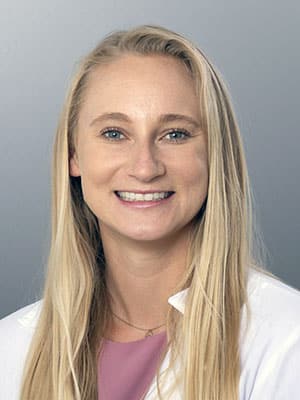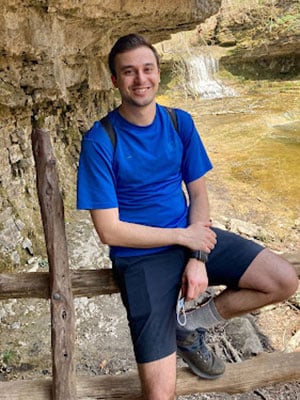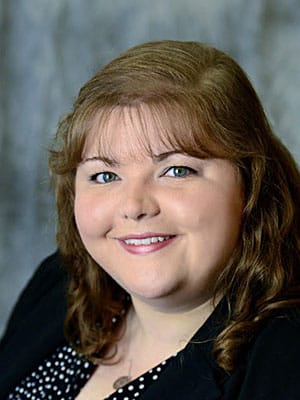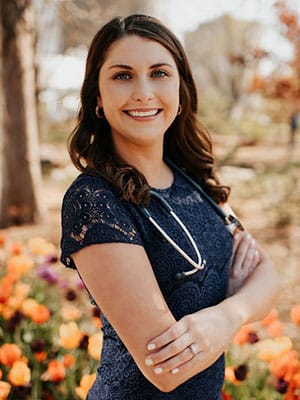
This past year I had the opportunity to serve as an AAFP Resident Delegate to the American Medical Association’s Resident Fellow Section. The Resident and Fellows section (RFS) is the dedicated branch of the AMA that gives a voice to and advocates for issues specifically impacting resident and fellow physicians. Functionally, the RFS operates as an autonomous “mini-AMA” made up of an appointed body of resident and fellow delegates who elect a governing council. At these RFS assembly meetings, resolutions are introduced, debated, and voted upon to incorporate as new policy into the RFS and sometimes, resolutions are forwarded to the AMA House of Delegates (HOD) to become potential policy within the full AMA.
As an AAFP Delegate, my role was to represent family medicine and family medicine residents by advocating for primary care issues. This year’s delegation represented family medicine at the November and June AMA meetings testifying on many important primary care issues including identifying racism as a public health threat, protection of resident and fellow training in the case of hospital or training program closure, telemedicine regulations and clarifying roles of non-physician post-graduate medical training.
I feel extremely fortunate to have been able to represent family medicine residents, physicians, and primary care at these meetings. My favorite moment in this role was partaking in resolution writing at the AAFP national conference where the resolution I authored, “Recognizing Osteopathic Manual Therapy as a Treatment for Musculoskeletal Conditions” was passed. This resolution will now go on to effect policy at AAFP by recognizing OMT as a first line treatment for musculoskeletal conditions, increasing research on OMT and increasing CME opportunities for family physicians to learn about this treatment modality. Without my position this past year, I likely would not have participated in advocacy on this level.

Just four days after my medical school graduation in May, I was being wheeled back to one of the operating rooms that I trained in as a third-year medical student only 15 months prior. I was scheduled to get a nodule, along with over half of my thyroid, surgically removed. 2021 was supposed to be memorable for predominantly joyful reasons—matching into a residency program, graduating from medical school, and moving across the country to a new state. Instead, fewer than two weeks before my scheduled move to Charlottesville, I was informed that the removed nodule was, in fact, thyroid cancer. Almost immediately, I nervously informed the UVA Family Medicine Residency leadership of my situation. Their response was, and has been, one of unwavering support. From recommending specialists to making sure that I am able to make my countless doctor’s, imaging, and lab appointments, I could not have imagined having a more understanding group of faculty and senior residents.
I could characterize my pre-residency mood as equal parts excitement and nervousness. The new interns were welcomed to Charlottesville with a family medicine-specific orientation that ran 2-3 weeks prior to our first official day in the hospital. This eased the transition, and allowed us to calmly familiarize ourselves not only with the UVA Health System, but also to settle-in to Charlottesville. I could schedule my long-neglected dental and vision appointments, find my preferred grocery store, and even register for an appointment at the DMV (how exciting!). I even had some time to explore the Shenandoah National Park. Furthermore, for me it also meant establishing with primary care, ENT, and endocrinology physicians in Virginia.
In just two short months of residency, I have already put my recent experiences as a patient to the forefront as I attempt to help my current patients navigate the often challenging and confusing health care landscape. Although it wasn’t the transition to residency that I anticipated, I’m beyond overjoyed to be working alongside such supportive colleagues and to be a part of the UVA family. I am looking forward to serving western Virginia for the next 3 years!

My experience as a Riverside Family Medicine Intern has been fantastic so far! I have felt so welcomed and supported throughout this transition from medical student to resident. We had an extensive orientation over a few weeks, which was incredibly helpful. During our orientation, our program did a great job of introducing us to the Riverside hospital system and electronic medical record as well as providing us with tools to effectively begin patient care. We received a lot of valuable information from our senior residents and attendings about our program’s requirements and the different rotations that we will complete during our first year.
Throughout my first two months, I have felt very comfortable asking for clarification or guidance. Being an intern is not easy, mostly due to the steep learning curve. All of a sudden, you are the one making decisions to care for patients and that’s a lot of new responsibility. The senior residents in my program have gone out of their way to help with or explain how to do tasks within the hospital and clinic settings. Their constant support has been phenomenal. I definitely made the right choice with Riverside!

Hello! I am an intern at Riverside Family Medicine and wanted to share my experience thus far. I have learned that being an intern can sometimes be very overwhelming. You gain a lot of responsibility and independence rather quickly. You are learning not only how to be a good physician and practice medicine, but how to think about things like billing and coding, what your workflow will be, and if not familiar with it already, how to effectively use the EMR. Thankfully, my program has been very supportive and made the transition from medical student to intern rather smooth.
Some things that my program did that I really appreciated was how welcoming and supportive they have been from the beginning. We had a three week long orientation where we got to meet our fellow interns, attending physicians and staff. They provided us with welcome goodies like backpacks and apparel. They did extensive EMR training with us and oriented us to both the hospital and clinic. Of course there are always things that are best learned on-the-job style and your program cannot prepare you for everything in orientation, but after ours, I felt prepared to start the intern year.
One of the most helpful meetings we had during orientation was with our chiefs. They gave us a quick rundown of each rotation and what to expect. My program also provided us with an “intern survival guide” that has proved to be rather helpful in terms of logistics and expectations for each block. And the people are amazing. That’s what has honestly made the biggest difference to me – knowing that if I am struggling, I have amazing co-residents, attendings, and staff to turn to. For me personally, I moved halfway across the country with no family in the area, so feeling supported in residency was very important to me. Riverside has taken me in as one of their own and given me a sense of home away from home, which I’m forever grateful for.